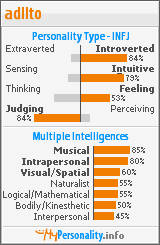 It is true that Nietzsche, instead of driving me further into atheism, initiated me into the questions and doubts of premystical inspiration, which was to reach its glorious culmination in 1951 when I drew up my [Mystical] Manifesto . . . Nietzsche awoke in me the idea of God. Dali 1952
It is true that Nietzsche, instead of driving me further into atheism, initiated me into the questions and doubts of premystical inspiration, which was to reach its glorious culmination in 1951 when I drew up my [Mystical] Manifesto . . . Nietzsche awoke in me the idea of God. Dali 1952
Dali as a surrealist developed his strange method of image portrayal by searching for images from beyond conscious human intellect: paranioac-criticism. This paranoid-critical method of painting was a deliberate detailed reproduction of subconscious images from dreams or spontaneous or self-induced delirium. I am strangely attracted to Dali's work ever since I saw some of his crucifx images and since visiting the Dali Universe exhibition in London. This picture is from a series entitled Catastrophes. For me these are a collision of ideas and Tolkien is very helpful.
... I coined the word 'eucatastrophe': the sudden happy turn in a story which pierces you with a joy that brings tears (which I argued it is the highest function of fairy-stories to produce). And I was there led to the view that it produces its peculiar effect because it is a sudden glimpse of Truth, your whole nature chained in material cause and effect, the chain of death, feels a sudden relief as if a major limb out of joint had suddenly snapped back. It perceives – if the story has literary 'truth' on the second plane (....) – that this is indeed how things really do work in the Great World for which our nature is made. And I concluded by saying that the Resurrection was the greatest 'eucatastrophe' possible in the greatest Fairy Story – and produces that essential emotion: Christian joy which produces tears because it is qualitatively so like sorrow, because it comes from those places where Joy and Sorrow are at one, reconciled, as selfishness and altruism are lost in Love.- The Letters of J.R.R. Tolkien, # 89 (7-8 November 1944).The unnamed image is from Dali's series called Catastrophes. There is a certain sharpness and severity which is contained within a sense of being bracketed or put in parenthesis. When things go wrong for us and life is difficult perhaps to the point of almost unbearable what are we to do? Perhaps the secret is the act of putting things in parenthesis that catastrophe can become eucatastrophe. I can't date this image but at some point in time Dali's worldview changed and he found belief, faith, God (read more here). That doesn't mean Dali became a conformist or anything like that, but he was still pulling apart the world around him but with a greater sense of meaning. In his 1942 autobiography he is reported to have written :-
And what is heaven? Where is to be found? Heaven is to be found, neither above nor below, neither to the right nor to the left, heaven is to be found exactly in the centre of the bosom of the man who has faith! At this moment I do not yet have faith, and I fear I shall die without heaven.By 1951 and the Mystical Manifesto Dali moved from artist depicting the existential angst of the absence of God to painter of signposts grabbing at the edges of perception and sensibility, the place where catastrophe and eucatastrophe meet: The place of Faith, Hope and Love











